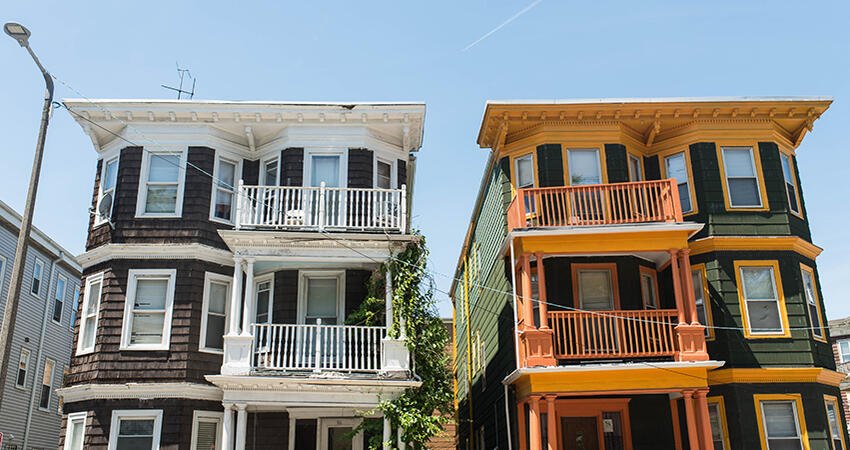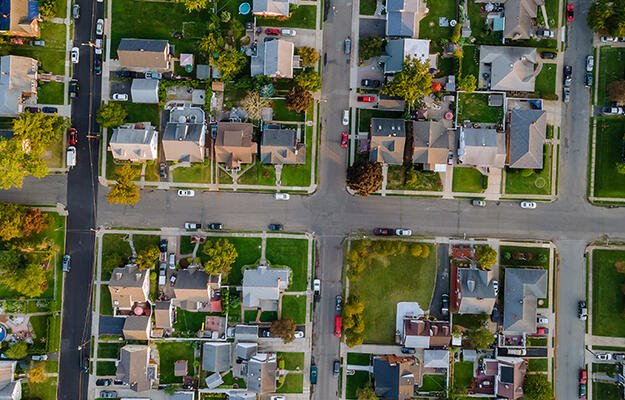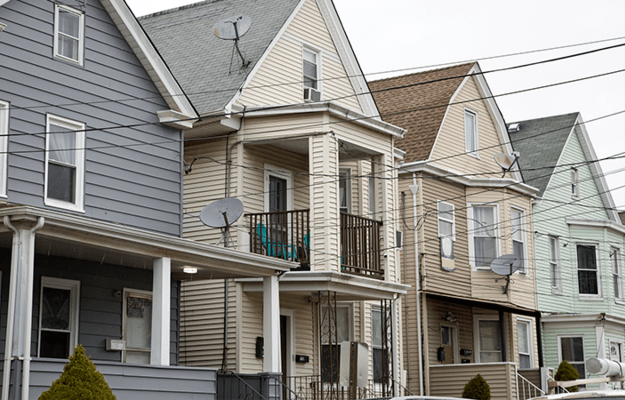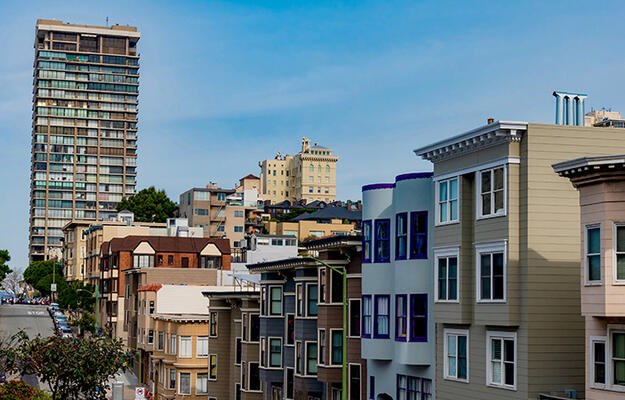
(Michael Moloney/Shutterstock)
How Do Mortgage Denials Influence Neighborhood Crime?
- Title:
-
Obstructing the American Dream: Homeownership Denied and Neighborhood Crime
- Author:
-
Eileen M. Kirk
- Source:
- Publication Date:
-
2020
Because of structural racism embedded in housing policies and practices, racial disparities in mortgage denials—and homeownership—persist. This study fills a research gap by examining the relationship between mortgage denials and neighborhood crime, social problems, and collective efficacy—the ability and willingness of community members to improve outcomes and behaviors in their neighborhoods—to understand how disinvestment may affect community-level outcomes. The study explores whether mortgage denials act as a form of disinvestment and block access to opportunity that, in turn, reduces collective efficacy and exacerbates neighborhood social problems. It also explores whether social environments mediate the positive relationship between mortgage denial and local crime.
The author focuses on Boston and uses the 2000 National Neighborhood Crime Study, the 2008 Boston Neighborhood Survey, aggregate violent crime data between 2008 and 2010, and 2000 Census demographic data. The author conducts a linear regression to test the relationship between mortgage denials and collective efficacy and social problems. The author then tests the relationship between mortgage denials and neighborhood violent crime.
The study finds mortgage denials are concentrated in communities of color, and this concentration of denials contributes to the marginalization of and disinvestment from these communities, resulting in higher neighborhood-level violent crime rates. Given the importance of homeownership as a driver for wealth creation, the author suggests the concentration of mortgage denials creates a modern-day policy akin to discriminatory redlining practices.
Key findings
- Mortgage denials are highly concentrated in Boston neighborhoods with high rates of disadvantage and large shares of Black residents, including Dorchester, Mattapan, and Roxbury.
- The study finds a strong positive relationship between mortgage denial rates and neighborhood violent crime. An increase in the mortgage denial rate by one standard deviation (0.06) is associated with a 22 percent increase in neighborhood violent crime.
- The author also finds that the neighborhood-level social problems variable, composed of survey items related to neighborhood problems such as poverty and drug use, partially explains the process through which mortgage denial and violent crime are related. Testing how directly social problems affected the relationship between mortgage denial and crime, the author found social problems accounted for 34 percent of the total effect.
- Mortgage denials were also found to influence social problems, with an increase of one denial per owner-occupied housing unit associated with an increase in 1.31 units in social problems.
- Mortgage denials did not affect collective efficacy.
Policy implications
- To address community-level outcomes of mortgage denials, the author suggests improved regulation and monitoring of legislation such as the Community Reinvestment Act, which is meant to bolster lending in low- and moderate-income neighborhoods.
- Racial and socioeconomic inequities in mortgage denials are a legacy of decades of housing policy that disinvested from and disadvantaged low-income communities and communities of color. To address the harms of discriminatory housing policies, the author suggests policymakers consider significant deliberate investments in these communities.


